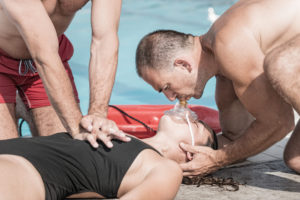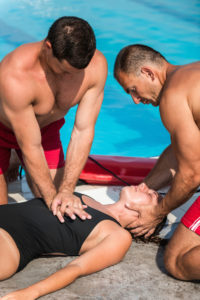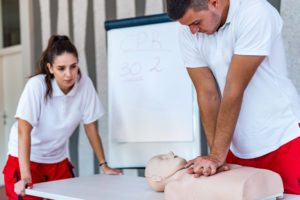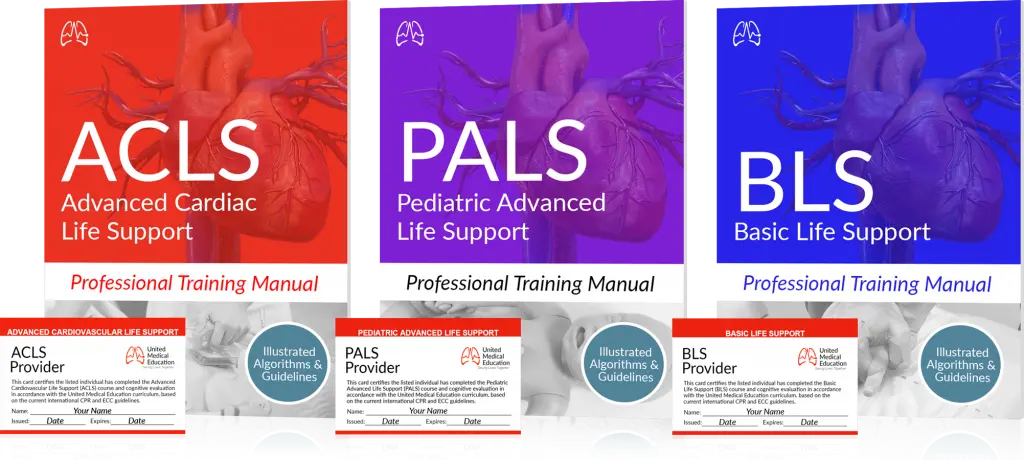Few roles can match the combination of excitement, responsibility, and satisfaction that comes with being a lifeguard. At its core, lifeguarding is a profession committed to ensuring safety and preventing accidents in aquatic environments. It involves vigilance, quick responses, and a solid understanding of lifesaving techniques.
Yet, to truly excel and make a significant difference in their role, lifeguards should consider going beyond the basics. This is where additional, advanced training like Basic Life Support (BLS) comes into play. The knowledge and skills gained through BLS certification online can supplement a lifeguard’s abilities, enabling them to respond to a wider range of emergency situations. As a lifeguard, your primary aim is to create a safe environment – BLS training gives you the tools to fulfill this aim more effectively and confidently.
Understanding BLS: What It Is and Why It’s Important
So, what exactly is Basic Life Support, or BLS, and why is it crucial in an aquatic environment?
BLS is a level of medical care used in emergency situations, such as cardiac arrest or respiratory failure, before full medical care can be accessed. It encompasses a range of lifesaving techniques including chest compressions, rescue breaths, the use of automated external defibrillators (AEDs), and more.
In a pool or beach setting, emergencies can escalate quickly. Whether it’s a near-drowning incident leading to respiratory issues, a heart-related incident, or severe injuries from a dive gone wrong, the quicker the response, the higher the chances of a favorable outcome.
With BLS training, lifeguards are equipped with a comprehensive set of skills to respond swiftly and effectively to these emergencies. In essence, it’s about saving precious seconds – and lives – when it matters most. At United Medical Education, we are committed to offering high-quality, accessible BLS training to help lifeguards like you enhance your lifesaving skills and make a real difference in your role.
The Role of a Lifeguard in Emergencies
Picture this: it’s a hot summer’s day and the pool is bustling with swimmers. Suddenly, a swimmer is in distress. They’re struggling to keep their head above water, gasping for breath. What do you do as a lifeguard?
Emergencies in a pool or beach setting can range from minor accidents, like slips and falls, to major incidents such as near-drownings or cardiac events. When they occur, swift, effective response is crucial. Lifeguards are often the first on the scene and play a vital role in minimizing the potential harm.
This is where BLS training shines. By providing a solid grounding in the principles of resuscitation, airway management, and early defibrillation, BLS training equips lifeguards to provide immediate care in these critical moments. It empowers them to respond confidently and effectively to various types of emergencies until more advanced medical assistance arrives.
Enhancing Rescue Skills with BLS Training
BLS training goes beyond merely augmenting traditional lifeguard rescue skills. It elevates them.
For instance, a lifeguard’s primary rescue technique usually involves getting the victim out of the water as quickly as possible. But what if the victim is unresponsive, not breathing, or has no pulse? In such cases, the lifesaving techniques learnt in BLS training – such as performing chest compressions and delivering rescue breaths – can be critical.
Consider a real-world example: a lifeguard at a local community pool spots a swimmer suddenly go still in the water. Upon reaching the swimmer, the lifeguard finds him unconscious, not breathing, and without a pulse. Because of his BLS training, the lifeguard quickly begins chest compressions and rescue breaths, successfully resuscitating the swimmer before paramedics arrive.
In this case, and many others like it, BLS training proves invaluable. It arms lifeguards with the knowledge and skills necessary to make a tangible, potentially life-saving difference in their role. At United Medical Education, we’re committed to providing this vital training, enhancing your role as a lifeguard and ultimately, saving more lives.
The Professional Advantages of BLS Certification
Professional credibility is essential in any career, and lifeguarding is no different. When beachgoers, pool visitors, or employers see that a lifeguard is BLS-certified, it sends a clear message: you take your role seriously. It indicates a dedication to the job that extends beyond the basics, and this commitment is not lost on those around you.
BLS certification can also broaden your professional horizons. With this advanced training, you may find doors opening to higher-level roles within aquatic facilities or even positions in the broader field of emergency services. This certification showcases your ability to handle high-stakes situations with confidence and expertise.
Steps to Obtain BLS Certification
Ready to enhance your role as a lifeguard with BLS certification? The process is straightforward and accessible. It typically involves completing a course that covers essential life-saving techniques, understanding emergency protocols, and passing an exam to demonstrate your knowledge and skills.
At United Medical Education, we provide the resources you need for BLS training right at your fingertips. With free access to BLS training material once you’ve set up a student account, and free practice exams to prepare for the final certification test, we are here to ensure your journey to BLS certification is seamless.
Personal Life Saving Stories
A friend of mine named Rachel, an emergency room nurse, has a story about a local lifeguard at a community swimming pool. The lifeguard noticed a senior swimmer suddenly become unresponsive and go limp in the pool. Having recently completed her BLS training, the lifeguard immediately pulled the woman out of the water and started performing CPR until the ambulance arrived. This is something to remember. Heart attacks can happen anywhere, including poolside. We usually worry about drownings but it really depends on the age of the population.
Conclusion: The Lifeguard’s Commitment to Safety
In wrapping up, the importance of BLS training for lifeguards cannot be overstated. As a lifeguard, your role is about more than monitoring the water and ensuring rules are followed; it’s about a commitment to safety. You are a vital line of defense in aquatic emergencies, and BLS training strengthens your ability to uphold this commitment.
BLS certification isn’t a one-time achievement; it signifies an ongoing dedication to learning, professional growth, and most importantly, the safety of those in your care. Whether it’s a day at the pool or a beach vacation, your role, coupled with BLS training, helps ensure happy memories for all. At United Medical Education, we’re proud to support you on this journey. Remember, your training has the potential to save lives – a responsibility, privilege, and commitment that truly defines the role of a lifeguard.








